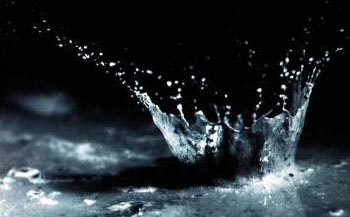Several months ago while conducting a routine field test of a Minelab detector, I got a signal from just underneath a fallen log – I moved the log and found a coin target which as it turned out was on the surface hidden from view by just a few leaves – the date was 1946. A few feet away another signal produced a 1986 coin from around the six inch level.
At the time I didn’t think much about it as it was a routine test and many targets were located that day and that’s what I wanted, as many targets as possible to assess the detector.
The incident was remembered when the event was casually relayed at a metal detecting rally event and one of the detectorists there asked, “That’s interesting...what then do you think it is that makes coins sink?” “You know”, I said...”That’s a very interesting question and one we don’t normally think about but there has to be a specific or multiple reasons as to why they do?”
In the case in question there was a difference of 40 years between the coins and no, they didn’t circulate at the same time because the 1986 coin was a decimal era and the 1946 coin was a pre-decimal era coin. The coins were also two different denominations – one being a ten pence (1986) while the 1946 coin was a brass three pence of UK origins. In this instance there are several ‘theories’ as to why the newer coin was buried deeper than the old...children playing (it was a wooded area) or perhaps an adult had simply thrown away the coin and it remained there on the top as it got kicked about by the aforementioned children and never got the chance to – and this is the crux of the question here – it ‘was never allowed to’ bury itself!
Now that’s a bold statement! The coin was never allowed to bury itself...that’s saying that the coin had responsibility for itself but hold on now...a coin is an ‘inanimate’ object - it has no life so would be therefore dependant on [real-life] factors determining its outcome.
So, what is that single or ‘multiple’ factors that causes coins to sink?
The answer is so obvious and is as plain as the nose on your face!
It’s Kinetic Energy.
Kinetic energy from rainfall is the main reason why objects sink in soil. Think about it for a moment...the size of the raindrops and their impact on the ground, and their respective kinetic energy is responsible for soil erosion which causes objects to be continually pounded by such concentrated energy over time (hundreds of years in cases) causing objects to sink by miniscule degrees and the rate of sink level/s is dependent on rainfall levels and intensity of rainfall in any given area. The larger the droplet the more energy is generated to move objects, push them , even turn them on their side and eventually to bury them out of view. Gravity, loose soils, seasonal changes, animals foraging, human and animal traffic and spring thaws also play their roles in eventually swallowing up objects from the surface to feet deep.

This could help explain why the coin I found underneath the log was not buried as it was never directly in contact with rainfall and the coin a few feet away had been.
Note, I never even mentioned the earthworms!
So, what do you think causes coins to sink?
Des Dunne




















Comments
Thanks for the question.
You experienced what I documented in the blog!
Yes, perhaps it is also due partly to the types of plants growing in soils in particular locations and their growth rates which contribute to their eventual swallowing of lost items?
Des